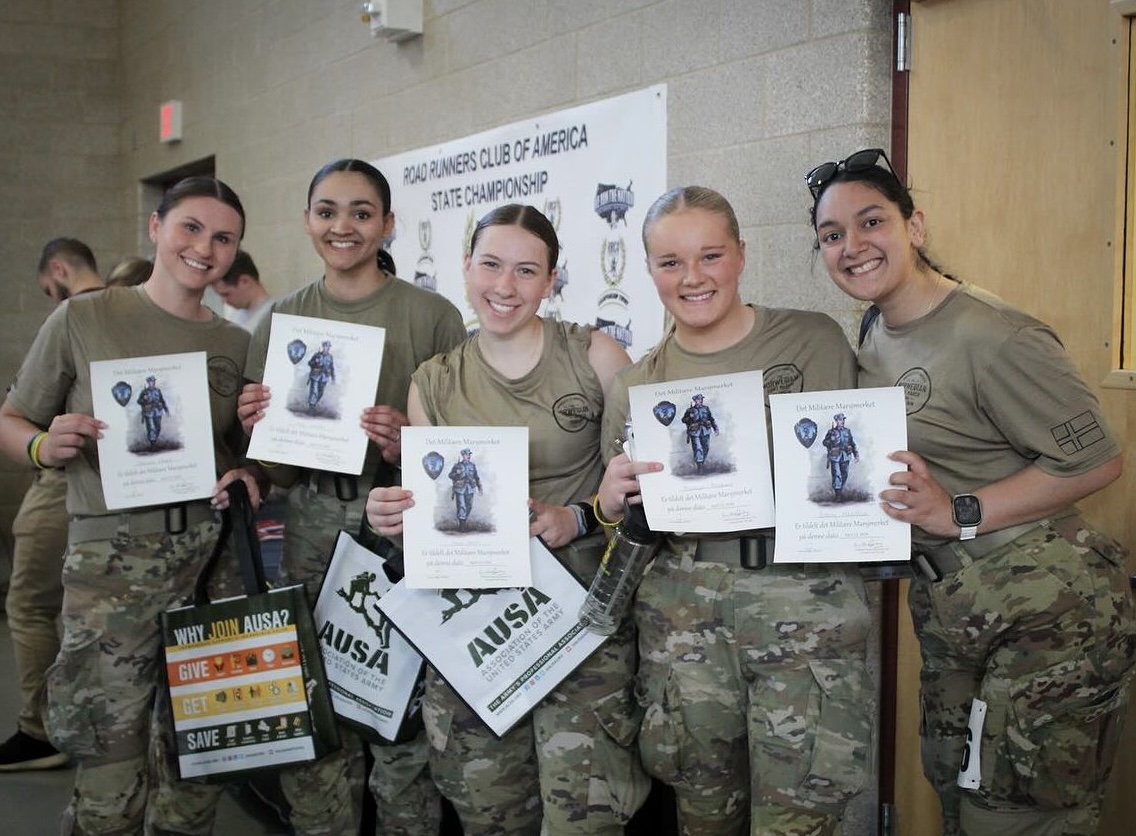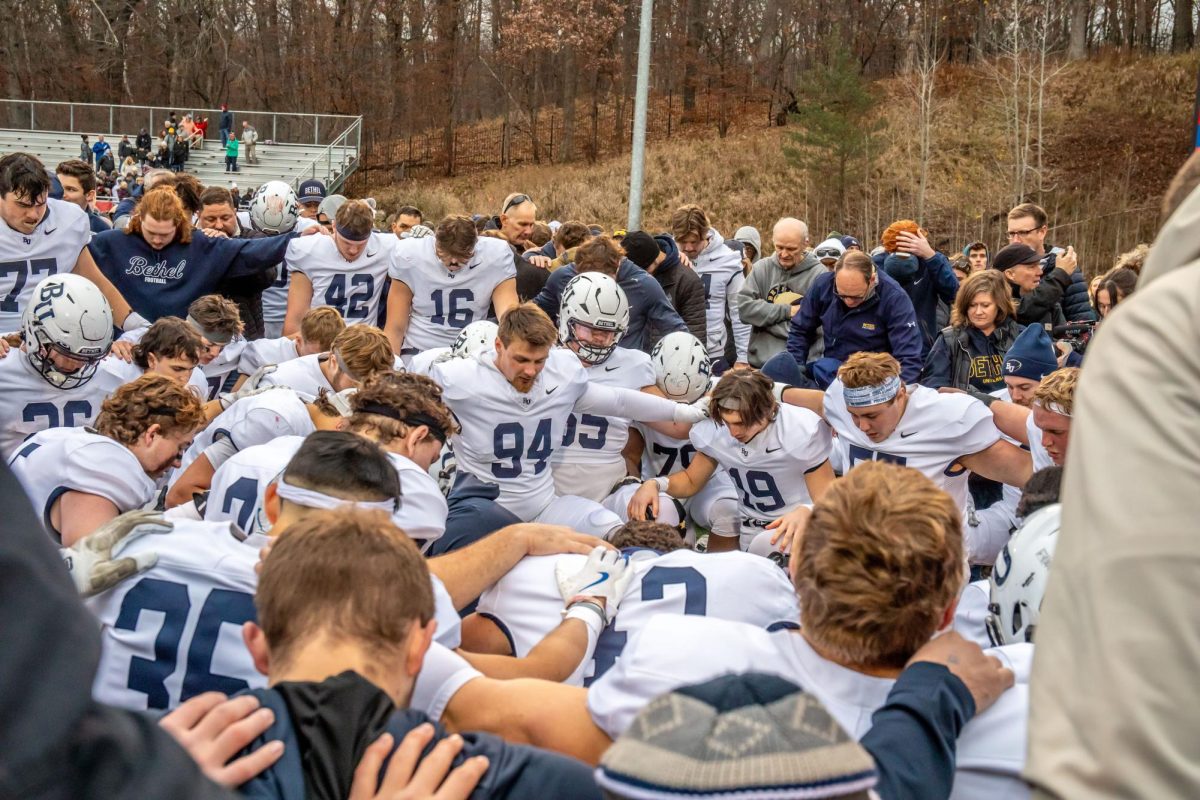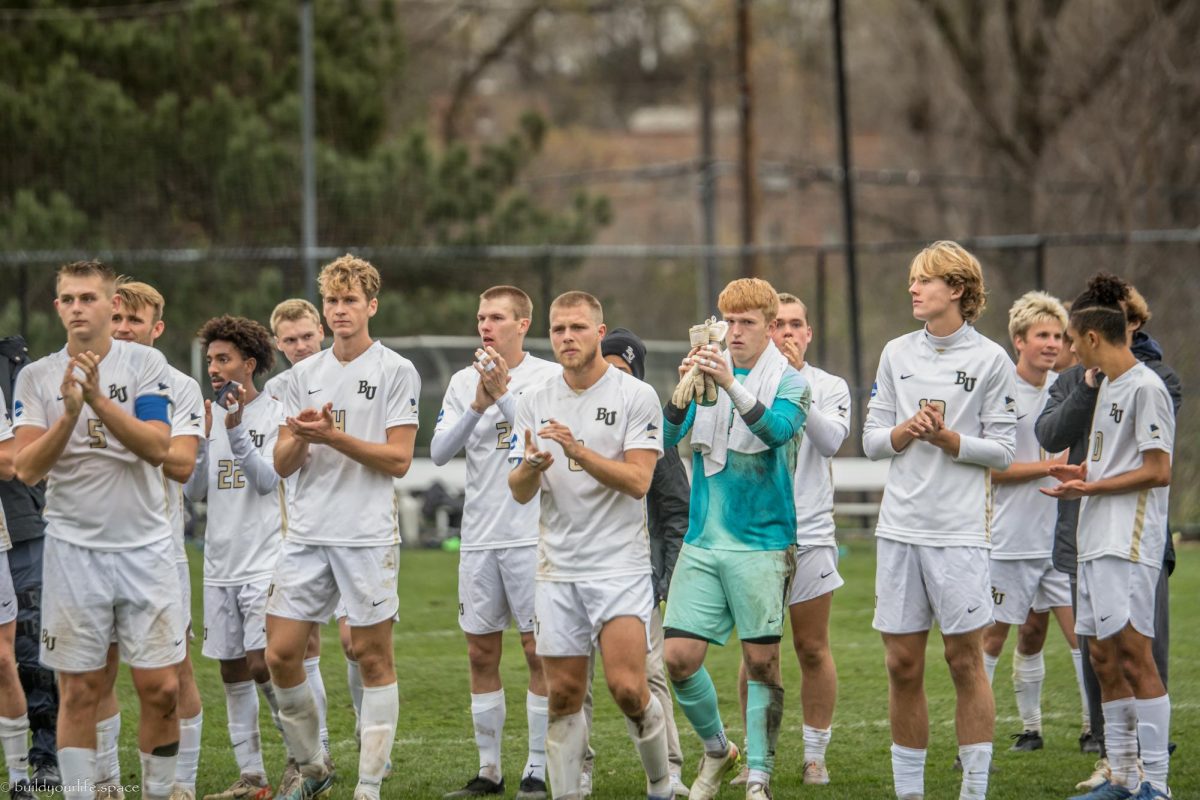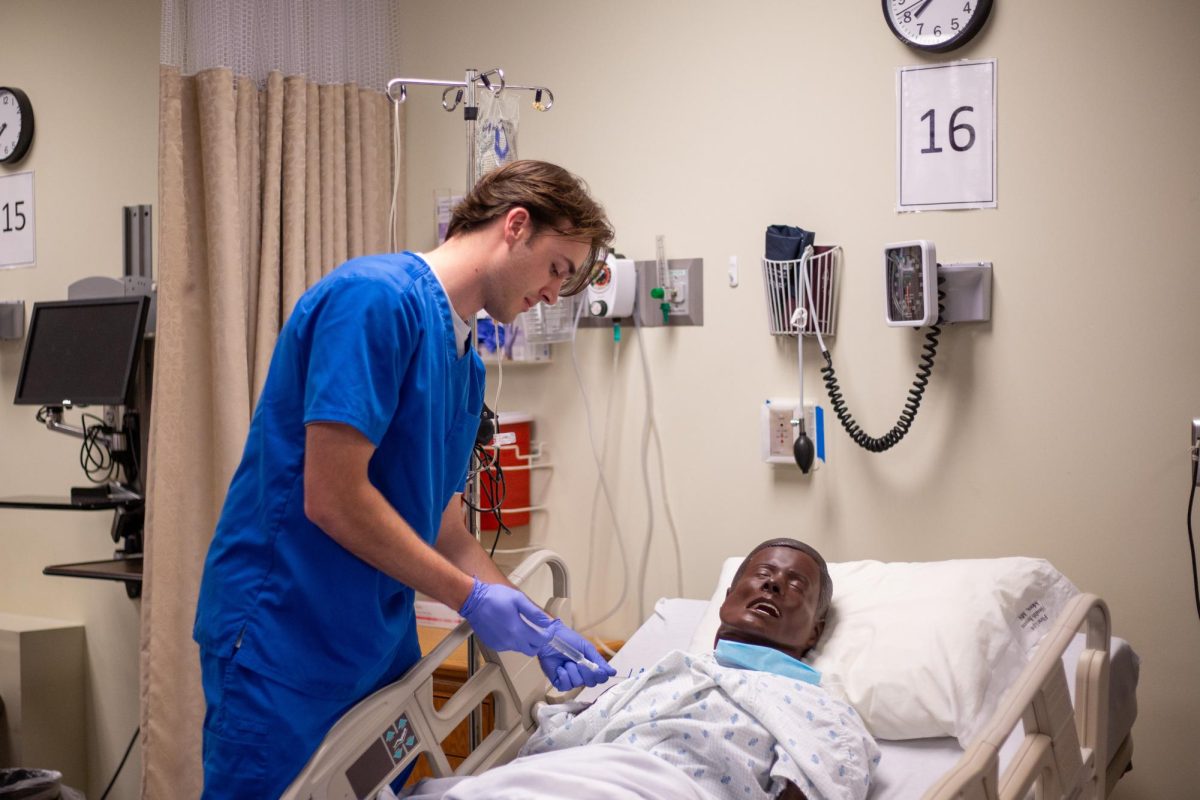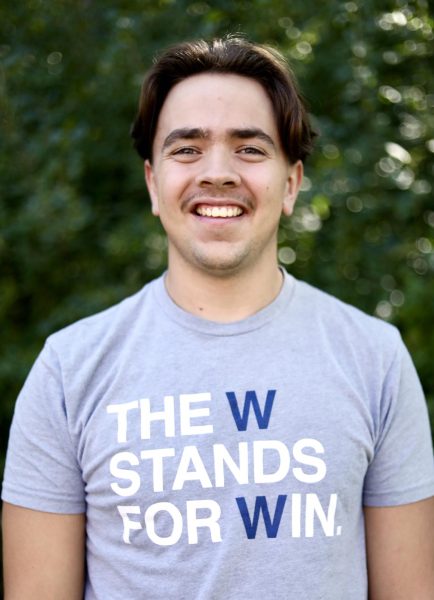As Logan Moe goes from patient to patient in his clinicals, he encounters a lot of strange stuff.
Necrotizing fasciitis: a skin-eating bacteria.
Necrotizing pancreatitis: parts of the pancreas die.
A lumbar drain: Yellowish-orange cerebrospinal fluid gets drained from the back to relieve the patient of pressure in the brain.
And yet, Moe can’t help feeling awe and fascination in them.
“I won’t lie, it’s kind of cool,” Moe said. “I’ve even talked to other male nurses about it … and we’re like, ‘Oh, that’s cool.’”
Moe, a junior from St. Peter, Minnesota, represents a unique minority among both Bethel University and in America: male nursing majors. According to the American Association of Colleges of Nursing, just 12% of nurses in 2022 were men. By comparison, in 2023, 10.4% of Bethel’s nursing majors were men, per the Institutional Data and Research Office.
Being in this minority was challenging for Moe at first. He admits he lacked vulnerability at times and often felt, as a man, he had to just know the answers. It took practice learning to ask for help from his female counterparts.
Nursing runs in Moe’s blood. His grandma founded The Luke Project, a nonprofit prenatal care clinic in Flint, Michigan, which provides free healthcare to pregnant mothers and newborns who can’t afford safe care anywhere else. His other grandma was also a nurse, and he has an aunt who is an anesthetist.
But becoming a nurse wasn’t always under consideration for Moe.
Until his junior year of high school, he intended to pursue a career in business or history. Just before committing to Bethel in the spring of that year, a close friend’s uncle passed away from a drug overdose, leaving Moe’s friend distraught. Moe found his strongly empathetic side taking over as he helped his friend cope, and discussed it with his grandma, who has always encouraged him to pursue a career in nursing.
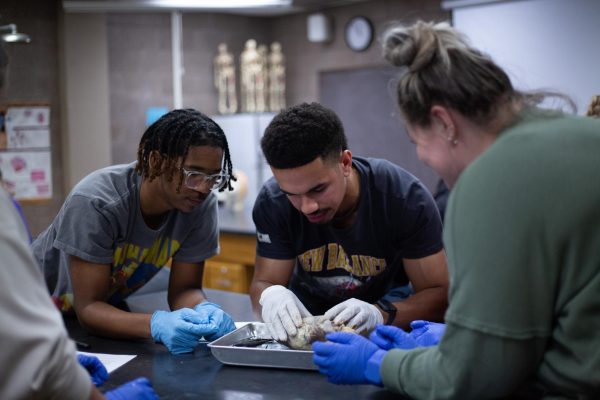
“She was like, ‘Being empathetic – that is a very nurse thing to do,’” Moe said. “I felt like if I wasn’t able to use my strength that I think God gave me, it’d be kind of a letdown.”
From that moment on, Moe knew his calling.
Once, Moe encountered a male patient during his clinicals who was being cared for by the female nurses at the hospital. The treatment the patient needed invaded his privacy, so beckoning Moe over, the patient indicated he wanted only Moe doing the caretaking as a preference to maintain the patient’s dignity.
About half of all patients at any given hospital are men, but only 12% of the nurses are men, meaning male nurses are extremely employable. Male or female, empathy and relatability are any nurse’s greatest assets. In such a vulnerable setting, Moe’s highest priority is patient comfortability, meaning his value as a male nurse lies in his ability to care for some patients, primarily men, who may feel less comfortable around female nurses.
—
Dai’Veone’ Ellis and Josiah Dudenhofer, both freshman pre-nursing majors, pick through a pale-gray pig heart reeking of formaldehyde in their anatomy lab deep within the secluded biology department at Bethel. The class is far from a blow-off, but like Moe, both know they’re in the right place as they look ahead to a career in nursing.
“I’m a guy that loves to see people filled with joy,” Dudenhofer said.
Dudenhofer expects to see joy frequently once he enters the field, and dreams of success not for himself, but for every patient he interacts with. The son of a mother working as a nurse at Rush Hospital in downtown Chicago, Dudenhofer has known he wanted to be a nurse since middle school.
Growing up, his friends would tell him nursing was a girls’ job. But after meeting Bob Worgen, a nursing professor at North Park University, Dudenhofer realized that male nurses are real and needed.
His “aha” moment of the need for nurses came during the 2020 pandemic, as his mom battled on the front lines of COVID-19. She came home after 12-hour nights, some of which came in a spur of the moment as other nurses fell ill, exhausted. Her clothes went in the washing machine as soon as she stepped foot in the door, ensuring she didn’t spread the virus to her family. None of them contracted it. When the Dudenhofers went on family trips to Michigan, their mother elected to stay home to continue the fight against COVID-19.
“Something huge you gotta understand in the nursing field is the act of being selfless,” Dudenhofer said. “And caring about yourself less in the grand scope and caring about people more.”
Dudenhofer also utilizes his gifts of relatability and empathy with patients. As a man, Dudenhofer recognizes the perspectives and ideas he can bring to treatment that differ from women. Professor of Nursing and Department Chair Julie De Haan sees men’s problem-solving abilities as beneficial.
At the same time, Dudenhofer recognizes ways in which nursing stays consistent between genders. Meeting people at their most vulnerable moments gives Dudenhofer the opportunity to give them quality care and make a tangible impact on their physical, mental and spiritual well-being, inspiring his dream to become a travel nurse.
Ellis, like Moe, found nursing through his grandma. Ellis grew up in a single-parent home, so his grandma was like another parent to him. When he was around 8 or 9, Ellis’ grandma contracted pneumonia and never recovered. But as her health declined throughout his elementary school years, Ellis witnessed firsthand the genuine medical care she received. One nurse even prayed for her.
Despite this, Ellis still wanted to be a business major — until the COVID-19 pandemic hit and his aunt, with whom he was also close, passed away. With two close-up experiences in a healthcare environment leaving an emotional mark, Ellis realized his true calling was nursing, where he hopes to work in trauma care. Just like Moe, what matters to Ellis is using empathy to provide a positive patient experience through relatability. In a field lacking people of color, Ellis sees his race as a strength for providing comfortable care to patients.
“If a patient sees somebody that looks like them, it’s a lot easier for those to be more open to conversations on what’s bothering them,” Ellis said.
Ellis is currently researching a paper for his inquiry seminar class about the need for men in the nursing community and has found the importance of diversity in his field. While an anti-male stereotype undeniably exists, Ellis says this stereotype is created by men. Since the earliest days of America, men went to war while women stayed back and cared in the home and served as nurses. This has been passed down through generations to the point that many men may assume nursing is a field solely for women.
Perhaps the biggest influence on this stereotype is the idea that women are more likely to be nurturing, making them suited for a nursing job. However, De Haan believes both genders are crucial in healthcare.
“We need males and females to provide a balanced perspective. I appreciate contributions from a diverse perspective — this makes for a more robust approach to care,” De Haan said. “I want males to be seen as compassionate and empathetic, and that these traits are not weak or effeminate.”
As Moe, Dudenhofer and Ellis all point out, a patient’s experience during treatment can be positively influenced when they feel more comfortable around their nurse. A male patient may feel more comfortable sharing more details necessary for quality care with a male nurse than a female one.
Despite the challenges — 12-hour clinicals, smelly labs and three-hour exams — that come with the nursing and pre-nursing majors, Moe, Ellis and Dudenhofer all agree that the joy they see in patients after treatment makes it all worth it. Seeing a patient smile after being released following a heart attack will make the hours spent in Bethel’s anatomy lab dissecting pig hearts or looking at corneas much more bearable.






